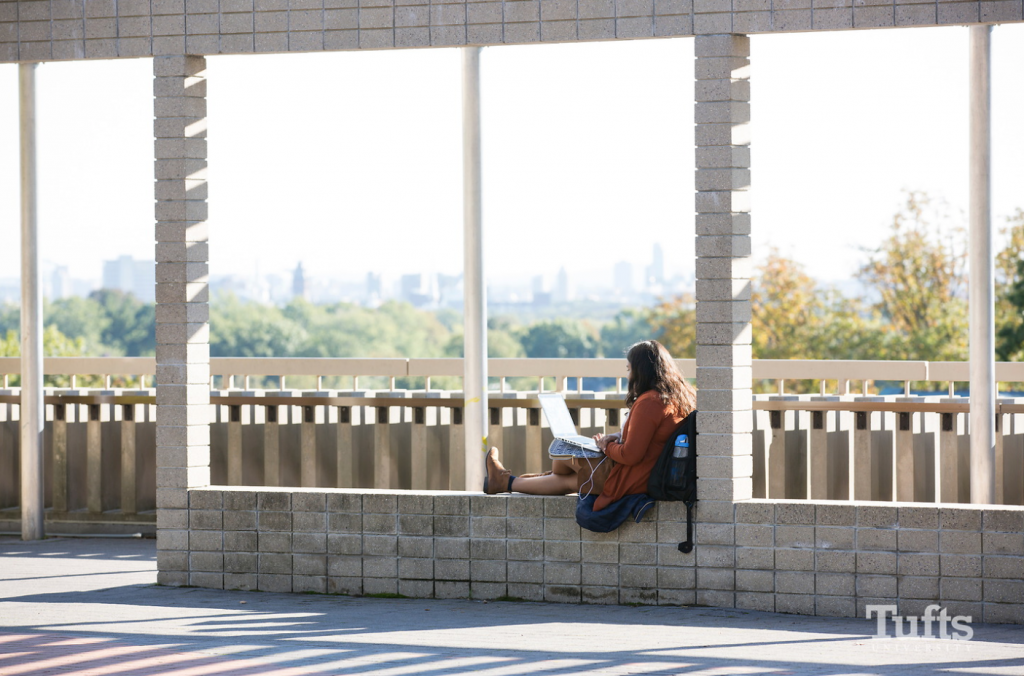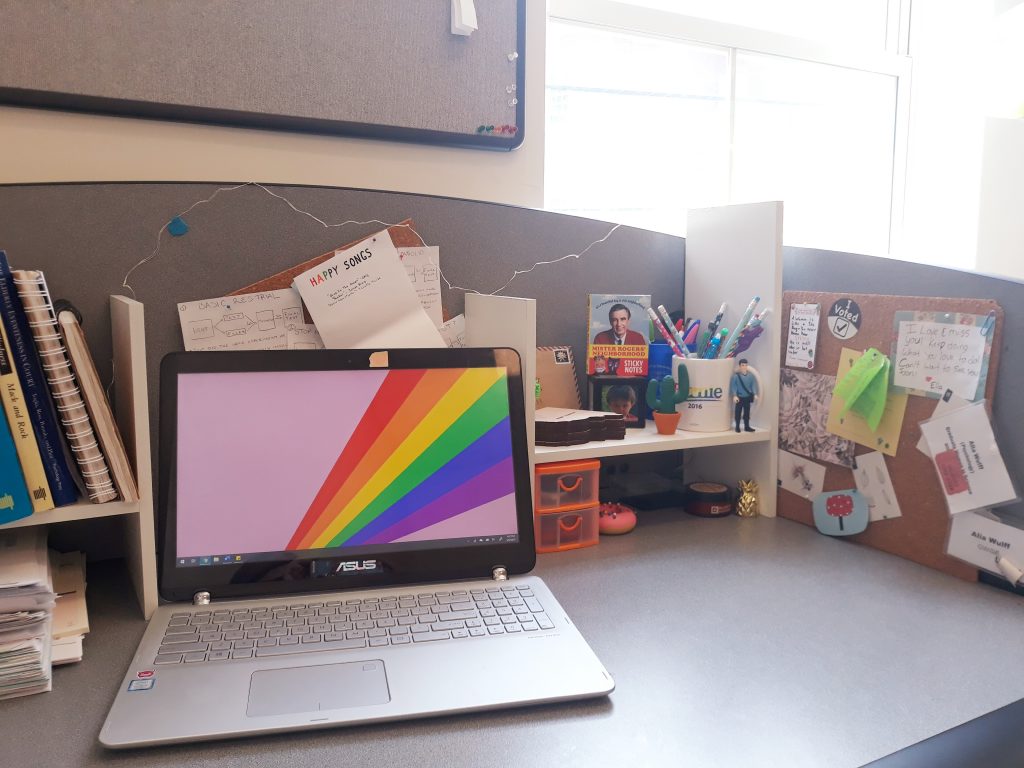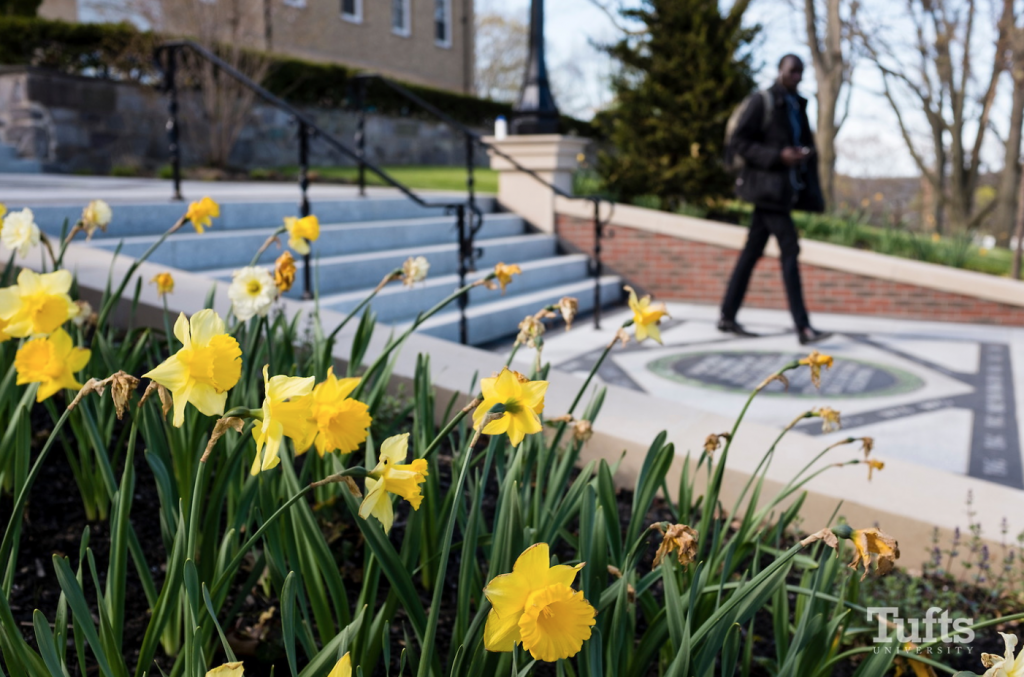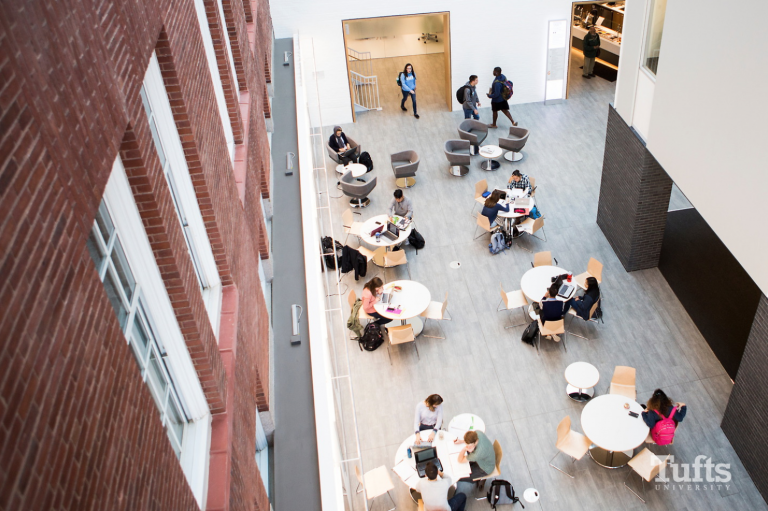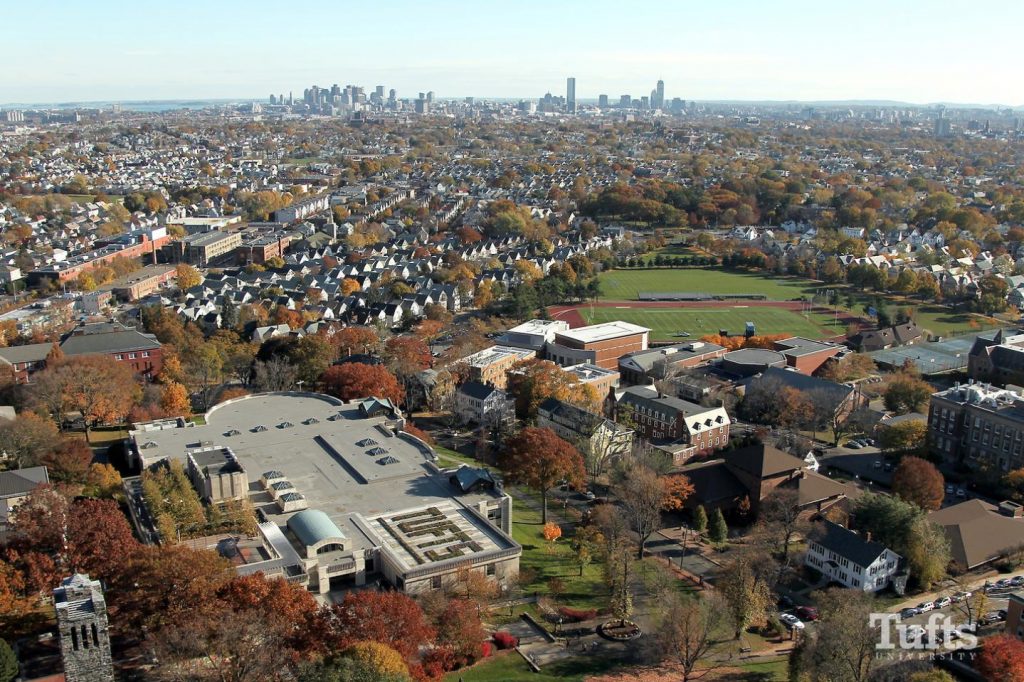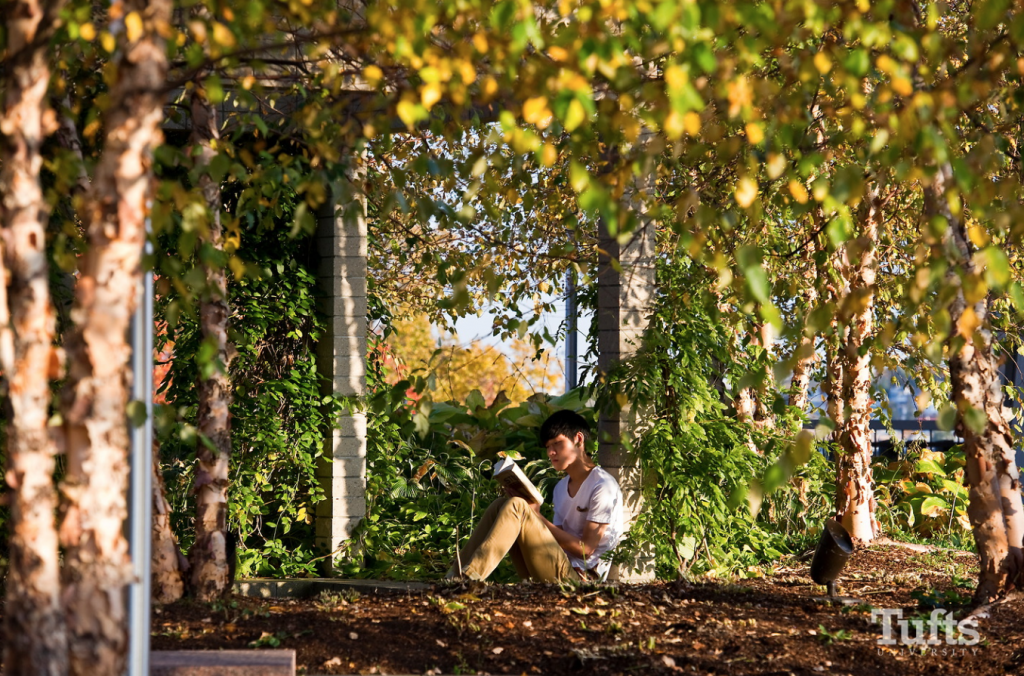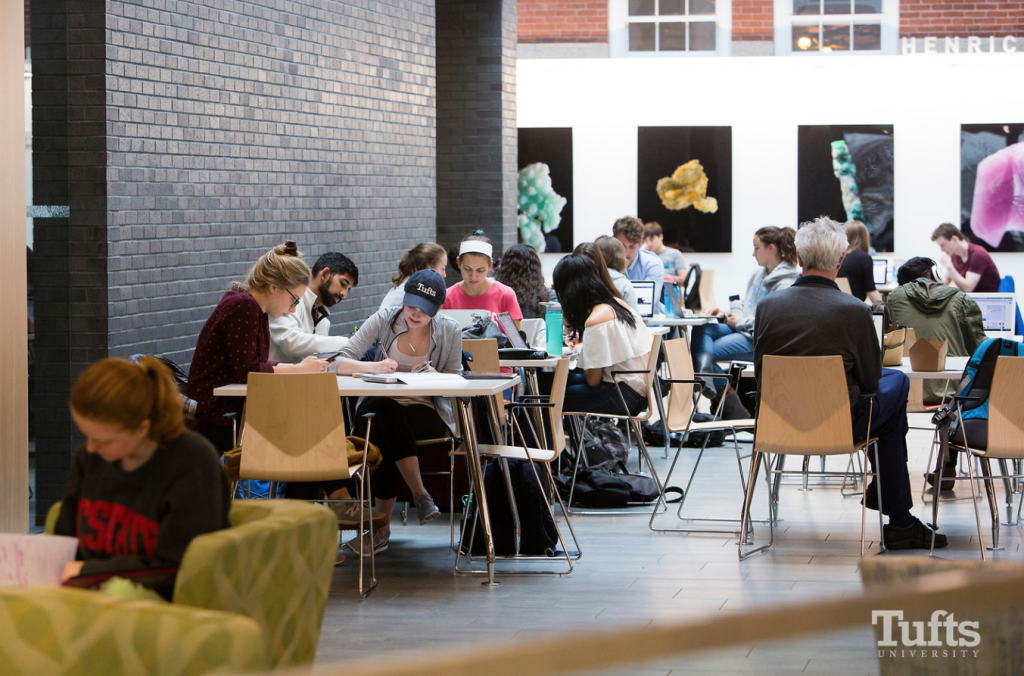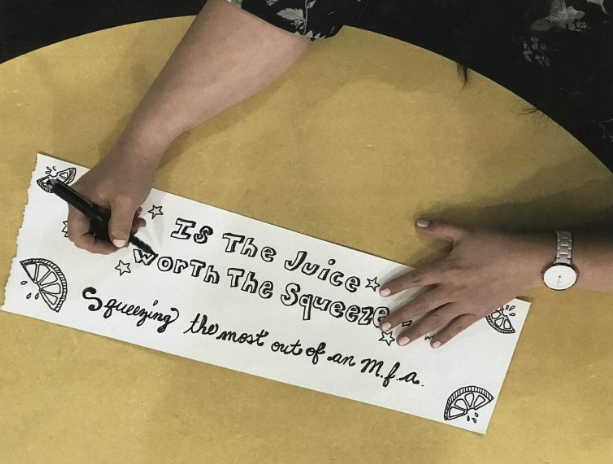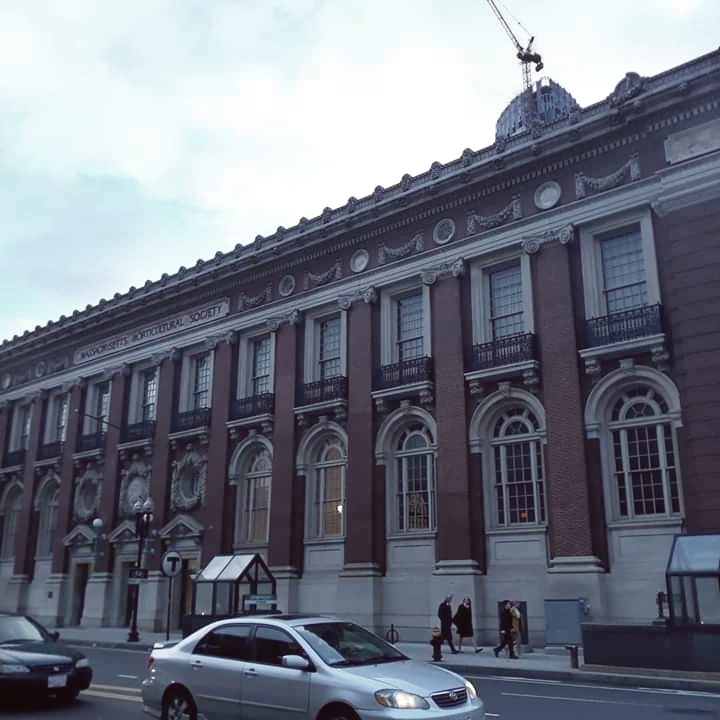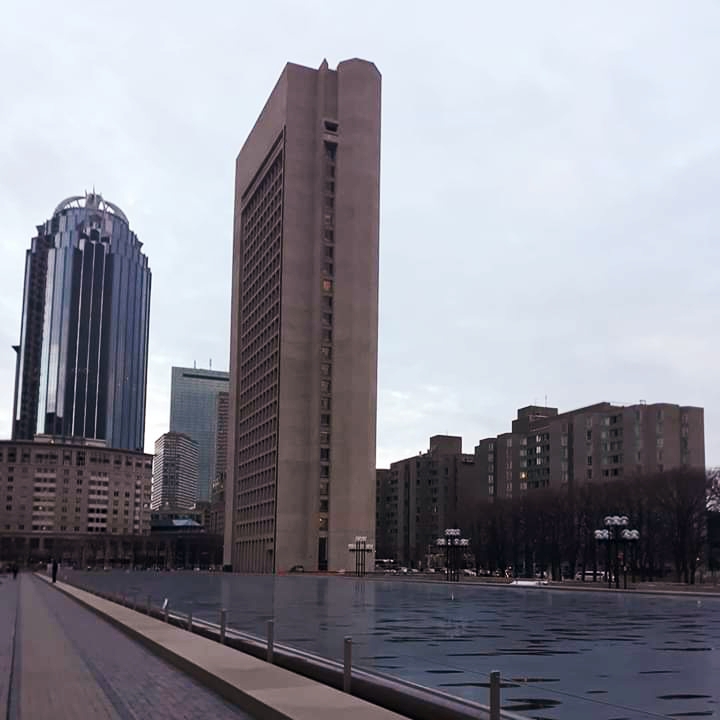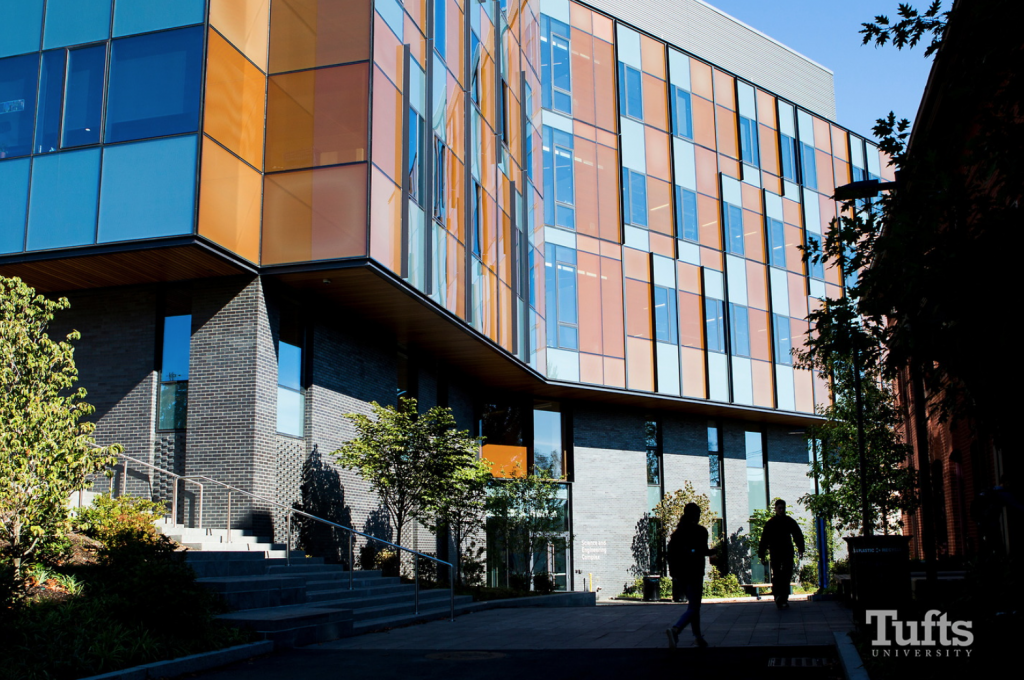Written by Ece Gulsan, Chemical Engineering Ph.D. student
After a long (actually very long) winter, the sunshine we have been looking forward to finally came. I still remember the first day of snow last November. I was thrilled and excited, but I did not know that the massive pile of snow would stay with us until late March! I almost forgot what the campus looked like without that white puffy layer.
And then it was 80 degrees outside.
Sun was up. The weather was hot and humid.
Jumbos, we made it. Summer came!
We still have a few hot weekends left to spend on a beach and work on our tans. There are plenty of beaches around which are accessible by MBTA, and all you need to do is to get a Charlie Card and hop on a train. Today, I am going to share my favorite beaches in the area, and what you should know before you head to them, or to bookmark for future exploration.
Tufts Boathouse at Upper Mystic Lake

My top choice is obvious for seasoned Jumbos, but if you are new to Tufts, you will be surprised by this beautiful hidden gem near campus. Located at 481 Mystic Valley Pkwy in Medford, Tufts Boathouse has two docks by the tranquil Mystic Lake with a gorgeous view. Bring your own picnic to spend the day, and if you have more time, stay longer to enjoy the sunset. The best part is you do not have to worry about entrance fee because it is all free!
Directions:Take the Bus 80 or 94 from campus towards upper Medford for a 30-minute ride, or bike there in 15 minutes. You can even walk in less than 45 minutes. I personally enjoy adding it to my morning run because it is super close to the campus.
Singing Beach at Manchester-by-the-Sea

If you need a “real beach”: the smell of ice-cold salty water and the warmth of a golden sand under your feet, Singing Beach is the place to go. The beach is located in the beautiful town Manchester-by-the-Sea, home of the very famous movie and the bookstore with the same name. The entrance fee to the beach is $7 for the day. There are also plenty of dining options in town.
Visit Cala’sfor their fresh fish tacos accompanied by a glass of slushy margarita. If you are in the mood for a more casual lunch, grab a delicious wood fired pizza to-go from Bravo-by-the-Sea and enjoy your meal on the beach. Do not forget to visit Captain Dusty’s Ice Cream Shopfor a sweet treat on your way back home.
Directions: Hop on the Rockport Commuter Rail Line from North Station to Manchester. The beach is 10 minutes walking distance from the train station. The MBTA offers an unlimited commuter rail weekend pass for only $10, which means you do not have to worry about paying for a round trip! If you leave early, you can even get to visit other towns (like Gloucester or Newburyport) on your way to Manchester, or you can take advantage of your weekend pass the day after by paying a short visit to Salem!
Front Beach and Back Beach at Rockport

Although it is not as isolated as Singing Beach, Front Beach offers a sandy shore with restaurants nearby. It is a perfect place to just lie down and spend the day under the sun. Alternatively, Back Beach has a more “sportive” vibe, which is the reason why I love that place. It is a hub for New England Scuba Divers. If you are a licensed Scuba Diver, you can join one of the diving communities in the area for their next “Scallop Hunt Dive” or “Lobster Discovery Dive.” If you do not have a diving certification, but want to have get one, there are many certified diving schools in the city. The summer is the best time to join to explore the marine life and you’ll have one more excuse to visit a beach on weekends! Plus, if you can dive in the ice-cold New England water, you can dive literally anywhere in the world.
Directions: The Rockport Commuter Rail Line from North Station will take you to Rockport. The beaches are approximately half mile away from the station. Do not forget to visit the city before you head to the beach!


